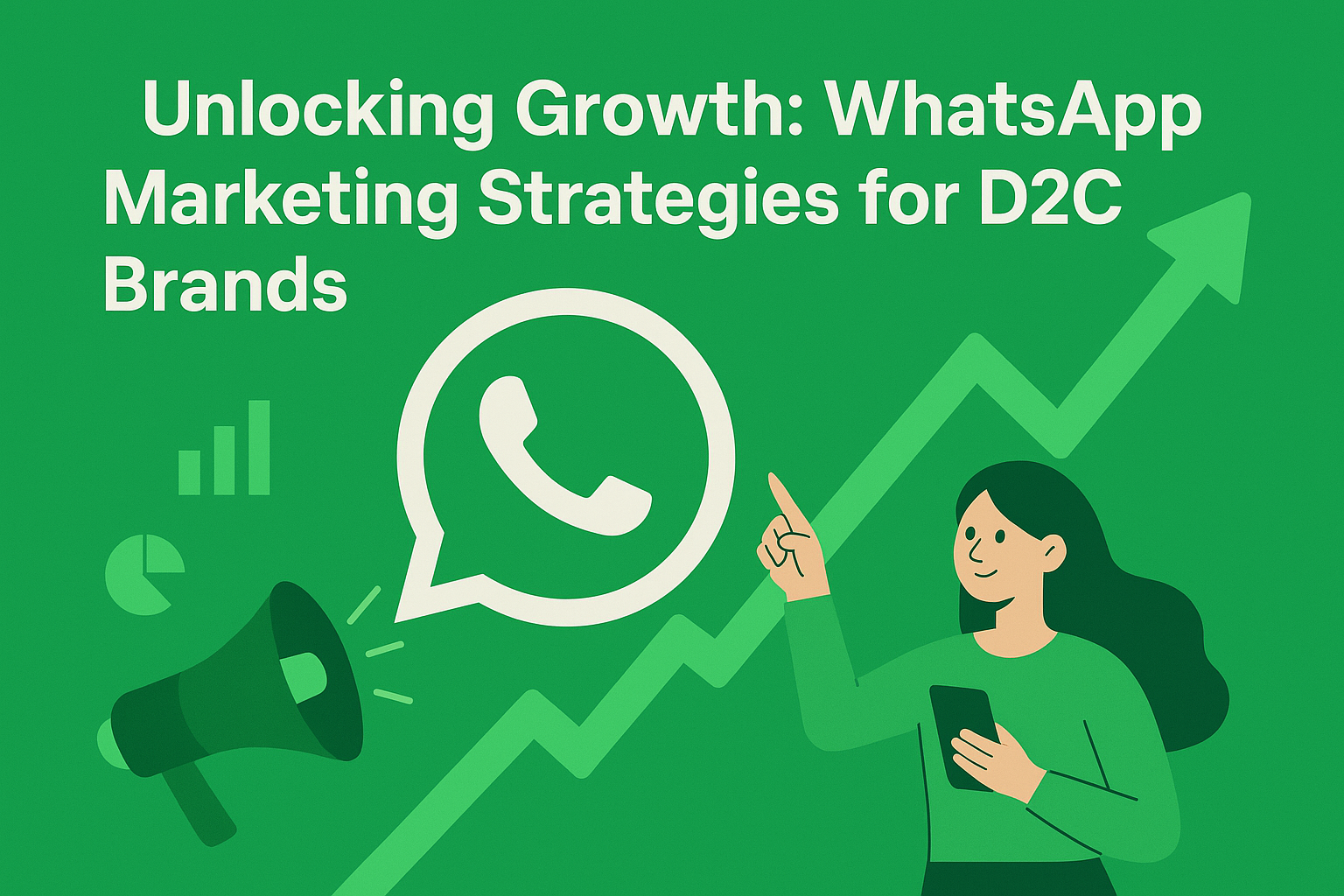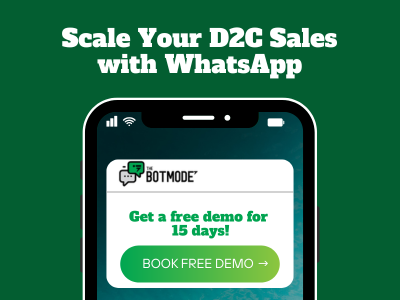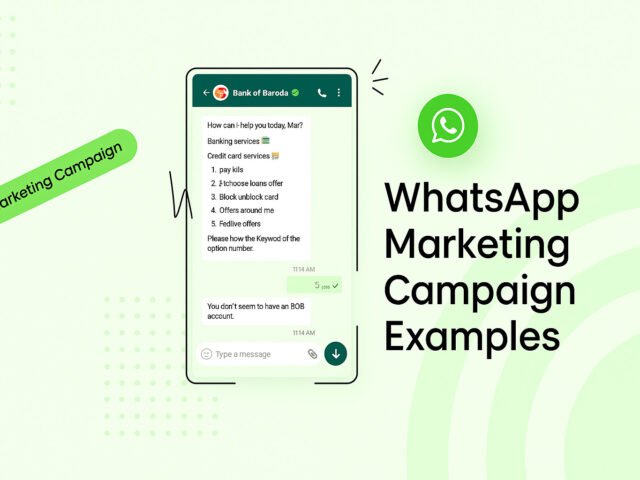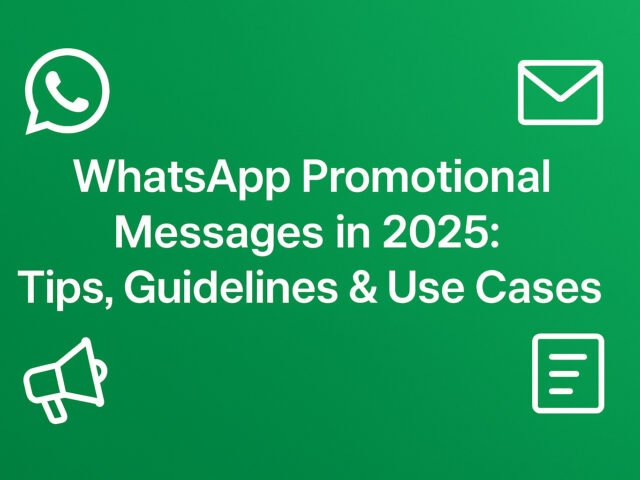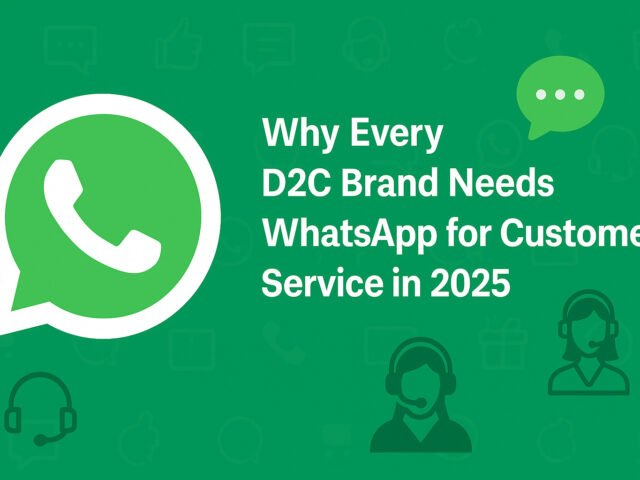Introduction
D2C (Direct-to-Consumer) brands are redefining the retail landscape by eliminating middlemen and connecting directly with consumers. But with great access comes intense competition. To stand out, brands must embrace highly personalized, real-time communication. That’s where WhatsApp marketing becomes a game-changer.
With over 2 billion users globally and open rates exceeding 98%, WhatsApp offers D2C brands a direct line to customers’ hearts—and wallets. In this blog, we explore effective strategies using WhatsApp Business, WhatsApp Business API, chatbots, and message marketing to drive traffic, increase conversions, and build loyalty.
What Makes WhatsApp a Powerful Tool for D2C Brands
WhatsApp Business & WhatsApp Business API: Understanding the Difference
- WhatsApp Business App: Ideal for small teams. Features include quick replies, product catalogs, and basic automation.
- WhatsApp Business API: Tailored for scaling. Enables bulk messaging, advanced automation, integrations with CRMs, e-commerce platforms, and more.
Pro Tip: If you’re scaling operations or managing hundreds of orders and support queries daily, upgrade to the API to streamline everything.
Key Statistics that Prove WhatsApp Marketing Works
- 98% open rate vs 20-25% for email.
- 60% of users prefer receiving order updates via messaging apps.
- Brands using WhatsApp message marketing see up to 30% higher conversion rates than email.
Core WhatsApp Marketing Strategies for D2C Brands
Personalization via Chat and Conversational Selling
Using a WhatsApp chatbot, you can instantly assist users with product queries, offer suggestions, or even walk them through checkout—all while maintaining a human-like interaction. Combine this with customer segmentation to tailor messages based on behavior, purchase history, or preferences.
Automated Messages & Notifications (Using WhatsApp Business API)
Send real-time order updates, shipping alerts, and abandoned cart reminders using API-approved message templates. Automating these messages boosts engagement and reduces customer support load.
Drip Campaigns, Broadcasts & Segmented Message Marketing
Broadcast promotional messages or run drip campaigns to specific customer segments:
- Welcome flows for new customers.
- Re-engagement campaigns for dormant users.
- Flash sale alerts for frequent shoppers.
Chatbots: 24/7 Support at Scale
Automate responses to FAQs, product inquiries, and return policies using AI-powered chatbots. Enable human handoff for complex issues to maintain a seamless support experience.
Integrations: CRM, E-commerce, Analytics
Integrate WhatsApp API with platforms like Shopify, WooCommerce, and your CRM to:
- Trigger personalized messages.
- Sync order status.
- Track performance metrics like click-through rates, average order value, and repeat purchases.
Conclusion
For D2C brands looking to grow in 2025 and beyond, WhatsApp marketing isn’t just an option—it’s a necessity. With the right strategy and tools, you can enhance customer experience, reduce cart abandonment, and turn casual browsers into loyal buyers.
Start small—send order updates or a welcome series—then scale with chatbots, API automation, and targeted campaigns. When done right, WhatsApp becomes your most personal and powerful marketing channel.
👉 Explore your options with TheBotMode and take your first step toward smarter customer conversations.
FAQs
Q 1. What is WhatsApp Business API and how is it different from the regular app?
The API is built for scale—it offers bulk messaging, chatbot integration, and analytics. The regular app is more manual and suited for small teams.
Q 2. How can a chatbot help my D2C brand on WhatsApp?
A chatbot provides 24/7 support, handles repetitive queries, recommends products, and improves conversion through guided shopping.
Q 3.What metrics should I track for WhatsApp marketing?
Focus on open rates, response time, conversion rate, average order value, and repeat purchase rate.
Q 4. How many marketing messages can I send without annoying customers?
Stick to 1-3 high-value messages per week. Prioritize relevance and timing to avoid opt-outs.
Q 5. What are the legal requirements for sending WhatsApp marketing messages in India?
You must obtain clear user consent (opt-in), avoid misleading content, and comply with data protection laws like the IT Act and WhatsApp’s Commerce Policy.

